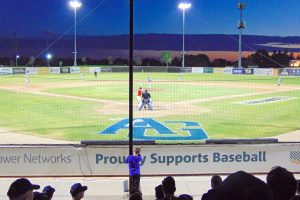Why shouldn’t older people enjoy the benefits and satisfaction of using the communication formats of the 21st century?Staying safe when using the Internet is a topic of great importance to us all; we need to be aware and confident users to gain the greatest advantage, writes Nan Bosler of the Australian Seniors Computer Clubs Association.
As seniors we can often hesitate to use a computer but if we are motivated to use technology we can succeed. Mastering even simple computer skills will increase our self esteem and improve our wellbeing.
Increasingly, the capacity for older people to participate in community activities, continue in employment, purchase goods and services, is reliant on information computer technology and the use of the Internet. This is particularly true of information. Many government departments and organisations now rely on the internet, e-bulletins and websites to disseminate information and obtain feedback from customers and clients.
There is no doubt, older people are at a severe disadvantage if they are not computer literate. Those who are physically or socially isolated, particularly those who live alone, benefit greatly from computer and Internet usage.
The Australian Seniors Computer Clubs Association (ASCCA is the national peak body for seniors and technology. It is run by seniors for seniors and helps start new clubs, advise and assist existing clubs; undertake research projects; liaise with the three spheres of Government and other organisations, conduct seminars and seek out discounts for members. It provides a channel for communication between like-minded people, who want to share in the potential of the computer age to serve their individual and community goals.
One of the recent research projects undertaken by ASCCA sought to understand why older people don’t use the internet. Even though there is a greying of the world’s population the number of older people accessing the internet is still low However,this age grouping is probably the fastest growing category of internet users.
The perceived reasons for this low usage:
- Cost, cost and cost
- Need for encouragement to learn how to use the internet
- Safety Concerns
- Limited age appropriate training
- Lack of broadband connection
- What ISP to use (and trust
- Couldn’t find the information they need on the websites they accessed.
Research has shown that these reasons are common in most developed countries across the world. While seniors appear to understand the need for safety on the internet there is an alarming lack of knowledge about how to gain the needed security.
Accessing the internet will provide us with many advantages. For instance it will enable us to communicate with family and friends to exchange photographs and emails; to talk face- toface via Skype or to embrace life-long learning in ways we never thought possible before becoming comfortable with using computer-based technologies. There are many other advantages and benefits; researching family history and shopping, whether it is for gifts or an airline ticket; checking timetables and theatre programs or keeping up to date on current affairs.
If we have come to Australia from another country we can still visit the land of our birth, even read the local papers in our native language thanks to the Internet.
ASCCA’s objective is to help seniors be confident and safe internet users.
A good starting point is the Australian Government’s Cybersecurity website which provides information for Australian internet users on the simple steps they can take to protect their personal and financial information online. http://www. staysmartonline.gov.au/
UPDATES
You should install and update anti virus software and set it to scan regularly. It is no use installing security software if you don’t regularly update it. The best way is to set it to automatically update.
You should also update the other software you use. A typical response from someone when they see a message to update, such as the Adobe reader you have installed on your computer, is to think, hmm, why bother – the program is doing what I need at the moment so I don’t need an updated version. Wrong! You do need to update because the reason you are receiving it is probably nothing to do with improved operability but may well be to remove a security threat that has been identified in that product.
PASSWORDS
Passwords a bit of a pain, even though we know they are a necessary part of our electronic life? We need to use strong passwords and have different ones for different uses. By strong, I mean you should have a password that isn’t easy for others to guess. Think about a TV program you have watched which shows someone trying to guess the password to someone’s computer What are they trying? All the obvious thoughts are of birth date, name of school, the dog’s name and so on. If someone was to work out what password you are using they will, of course, try that same password to access other password protected parts of your life. That is why it is important to use different passwords for all accounts or reasons.
Use a mixture of capital and lower-case letters and add in numbers or symbols. it needs to be something that really means something to you so that you will be able to remember it. You may find it best to have a common part to all your passwords but add different components front, back or middle of that word. Give it a lot of thought. You could also try a group of words such as ‘lovelysunnyday’. I leave it to your imagination.
PRIVACY AND SOCIAL NETWORKING
The Internet has a very long memory so it is good practice to think before you click. Social networking sites have privacy setting which should be considered carefully and set to the level of privacy one needs. I will never send a credit card number, even to someone I trust implicitly, in an email. I won’t make a payment online unless it is to a secure site.
There is a symbol often used to denote a secure site – it is a closed padlock.
Social networking isn’t only for young people!. Sometimes it can be the best way to get grand kids to actually communicate with you! I recall wanting to urgently get in touch with one of my granddaughters. I knew a phone message to the family’s landline would remain unanswered for probably days so I placed a carefully worded message on her Facebook wall – three minutes later I had my answer.
Check out the Easy Guide to Socialising Online on the ASCCA website for information about the cyber safety features of social media sites.
About
Nan Bosler, OAM feels strongly that learning is a lifelong experience. She was over 50 before going to University, has five tertiaryqualifications, is a published author and international speaker. She is the foundation president of the Australian SeniorsComputer Clubs Association and seeks to empower people to use modern technology. She has been involved with community organisations for more than 60 years and is a great grandmother.
“The internet has a very long memory, so it is good practice to think before you click.”






















Add Comment